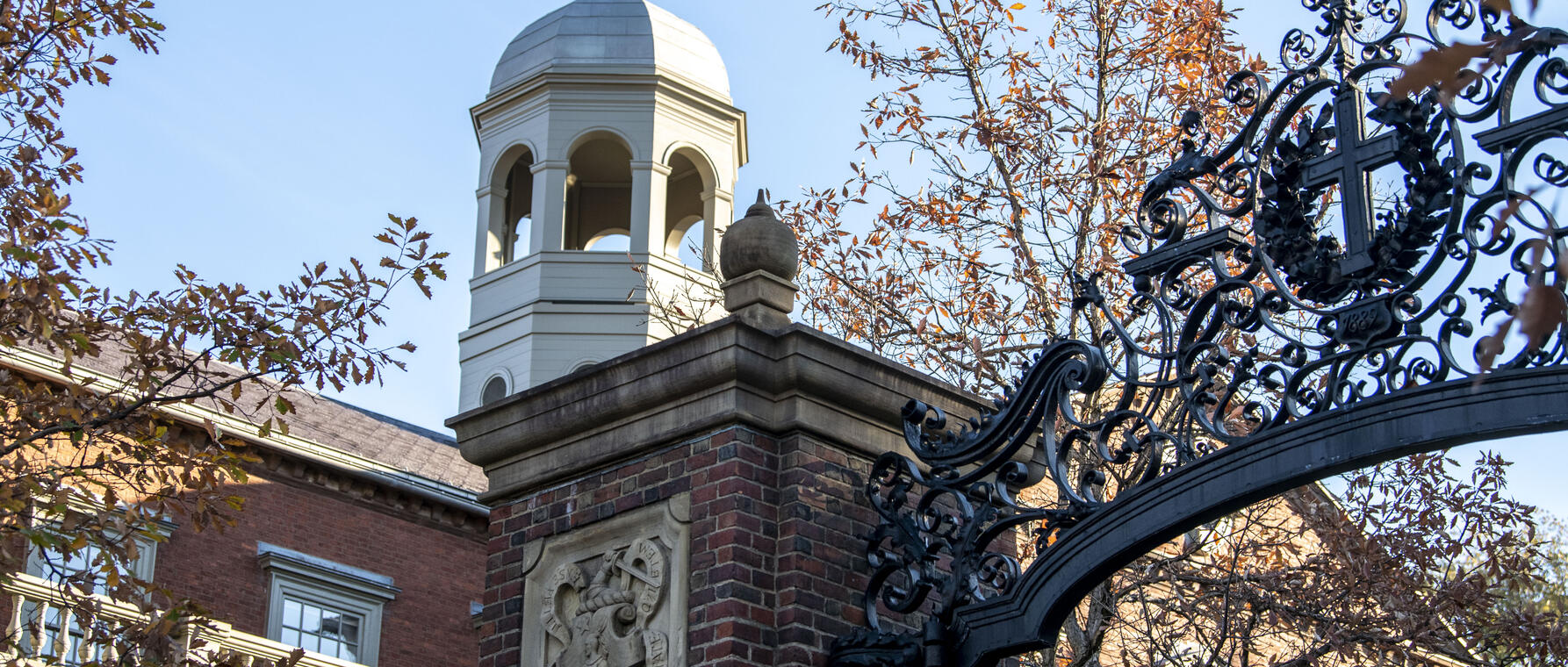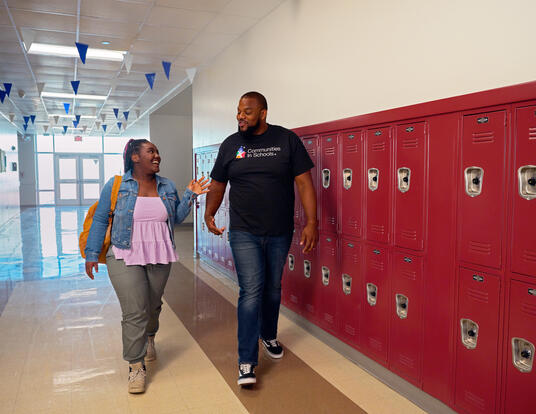Working for Equity, Addressing Slavery
Pelton discusses intersection of Boston Foundation, Legacy of Slavery missions

M. Lee Pelton, PhD ’84, is the president and chief executive officer of the Boston Foundation, a $2B nonprofit organization committed to “improving lives and strengthening communities.” Named to the NonProfit Times 2024 list of America’s 50 most powerful and influential non-profit leaders and a 2024 recipient of the Harvard Medal, Pelton previously served as the 12th president of Emerson College, dean of the college at Colgate University and Dartmouth College, and president at Willamette University for 13 years. Late last summer, Pelton was appointed to the advisory council of the Harvard & the Legacy of Slavery Initiative. In an interview with the Harvard Kenneth C. Griffin Graduate School of Arts and Sciences (GSAS) Office of Communications, he discusses the value of truth and reconciliation, the lasting impact of slavery, and what he hopes to bring to the Initiative’s work.
Why is it important for Harvard to address its legacy of slavery nearly 160 years after abolition?
The Legacy of Slavery Initiative was a bold and honest appraisal of Harvard’s ties to slavery. It recommended that Harvard take several steps to acknowledge and reconcile its slavery legacy, including among them honoring enslaved people through memorialization, research, and curriculum; identifying, engaging, and supporting descendant communities; and developing enduring partnerships with historically Black colleges and universities.
Efforts to acknowledge and reconcile past harms are not new. The post-apartheid South African Truth and Reconciliation Commission is probably best known. But we can also look to our own country when the federal government issued a public apology and recompensed Japanese Americans who were interned during World War II, by providing cash payments to surviving internees in 1988 that totaled about $1.6 billion or more than $4 billion in current dollars. In each instance, while we recognize these efforts began with an essential and honest acknowledgment, they also included, most importantly, efforts to repair and remediate harms whose effects some members of these descendant communities experience, even today.
Where do you still see the legacy of slavery? Why weren’t changes like the landmark civil rights legislation of the 1960s enough?
Equity and equality are related, but they are not the same. Equality focuses on equal inputs, while equity focuses on equal outputs. In his 1965 commencement address to the graduating classes of Howard University, President Lyndon Baines Johnson noted this distinction when he famously said “You do not take a person who, for years, has been hobbled by chains and liberate him, bring him up to the starting line of a race and then say, ‘you are free to compete with all the others,’ and still justly believe that you have been completely fair.”
At the Boston Foundation, our focus is on creating equity and providing opportunities to close equity gaps. For instance, the Federal Reserve Bank of Boston’s 2015 report, The Color of Wealth, noted that the white Bostonians had a net wealth of almost $250K, while our Black residents had a net wealth of $8. That inequity gap is unchanged almost a decade later. This is shocking and unacceptable. Most important, it did not happen by accident. It has a well-documented history, even as we recognize that many people and groups suffer from these inequities—not only Black folks, but Latinx, Asian American and Pacific Islanders, Indigenous people, LGBTQ, immigrants, migrant workers, and predominantly white low-income, underserved and historically marginalized communities.
Can you tell us a bit about the advisory council and its role in the Harvard & the Legacy of Slavery Initiative?
The advisory council will build on the progress the Initiative has made to date. We are here to support strategic development and the implementation of recommendations from the report of the Presidential Committee on Harvard & the Legacy of Slavery. We also advocate for and support outreach efforts with descendant communities, fostering connections, partnerships, and ongoing engagement.
What are your hopes for your own contribution to the work of the Initiative?
I am deeply connected to descendant communities through my work at the Boston Foundation and my civic leadership engagements, including previously as a college and university president. I believe I bring experiences, perspectives, and a commitment that will be helpful in reaching out to these communities, community leaders, families, faith leaders, and others.
Finally, what does the Harvard & the Legacy of Slavery Initiative mean to you personally and why did you want to get involved?
I believe that acknowledging and repairing the harm caused by Harvard's entanglements with slavery warrants action. I'm very pleased the University is moving in this direction. As a former overseer, an alumnus of Harvard Griffin GSAS, and someone who cares deeply about this issue, I agreed to participate in the advisory council as the project moves forward.
As part of my personal reflection, I often quote the Black writer and social critic James Baldwin, who said, "Not everything that is faced can be changed, but nothing can be changed until it is faced." Put another way, there comes a time when you have to tell the truth. Harvard is taking an extraordinary step in that direction, and I would like to do whatever I can, both personally and professionally, to support that truth-telling.
Banner image by Tony Rinaldo
Get the Latest Updates
Join Our Newsletter
Subscribe to Colloquy Podcast
Simplecast





